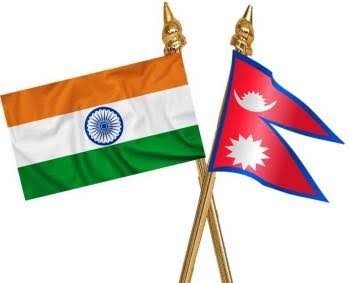Nepal’s political leaders, lawmakers, and foreign policy experts have urged the country to seek a more prominent role in its relationship with India, particularly in the wake of the April 22 Pahalgam terror attack.
“We are so tempted that we should create a space in New Delhi out of the partnership that we have had till now, and particularly after the Pahalgam incident,” Minendra Rijal, a former minister and senior leader of the Nepali Congress, said on Monday.
Speaking at an event in Kathmandu , organized by the Institute for Public Policy and Partnership, Rijal noted that as India’s relationships with some of its other neighbours face challenges, Nepal should seize the opportunity to assert its importance. He called for sincere and open dialogue with India on sensitive issues.
“No one can substitute Nepal-India relations. Our relationship goes beyond the Roti-Beti cliché (sociocultural ties), and these relations don’t fit into any single framework. But when engaging with India, most of the time, our leaders only care about their politics and how to secure election tickets,” Rijal added.
Former foreign minister N.P. Saud also addressed the gathering, saying that achieving a perfectly balanced relationship in diplomacy is unrealistic, despite popular sentiment.
“We have to maintain our relations by keeping national interest at the core. We should be open while dealing with India. Non-alignment has become increasingly irrelevant, and multilateralism is gaining importance. In this context, we need to fine-tune our relations with India in light of emerging global and regional developments,” Saud said.
Meanwhile, Vijay Jolly, former in-charge of the BJP’s foreign cell, called for stronger cooperation from Nepal in India’s fight against terrorism. He emphasized that India respects Nepal’s independent foreign policy, provided it does not compromise regional stability.
Highlighting the deep-rooted neighbourly ties, Jolly asserted that there is no place for terrorism in South Asia. “SAARC is dead, and terror and trade cannot go together. After 2025, we need to give new dimensions to our bilateral ties,” he said while condemning the Pahalgam terror attack.
He also recalled India’s prompt assistance to Nepal during the 2015 earthquake and noted the frequent high-level visits between the two countries. “Prime Minister Modi has visited Nepal a record five times since 2014, while nine Nepali Prime Ministers have visited India. Over 7.5 million Nepali nationals live and work in India, which makes our relationship special and unique. The security forces of both countries are guarding their respective borders,” Jolly added.
India and Nepal share a long-standing relationship, marked by deep cooperation in defence, trade, development, and cultural exchange. According to the Indian Ministry of External Affairs (MEA), Nepal is a priority partner under India’s “Neighbourhood First” policy.
The MEA further noted that frequent high-level exchanges have added momentum to the partnership and enabled both sides to review and enhance their ties across a broad spectrum.
IANS














